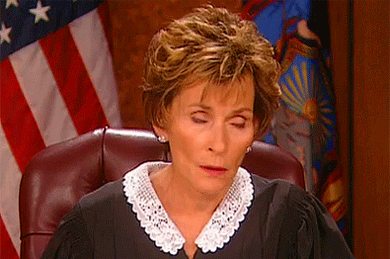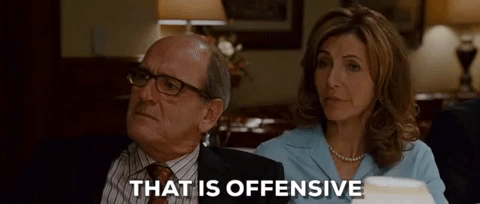You can learn a lot from TV's artistic expressions of dystopian (or seemingly utopian) possibilities for the future.
Popular television shows such as Netflix's Black Mirror and other science fiction-based fantasies offer a glimpse into the future. The glimpses typically come with a sinister twist to entertain viewers.
However, science fiction hasn't strayed so far from reality as of late. Of course, you'd have to temper those visions with a heavy dose of pragmatism to draw a conclusion the lands closer to reality.
Art Does Imitate Life
Netflix's series Black Mirror Smithereens episode highlights other real-life issues such as the increasingly unstoppable power of the tech industry. Indeed, today's tech industry is formidable.
Today, society is barely waking up to the dangers of exposing their personal information online for all the world to see. The episode highlights how social media may not always produce the best results for users.
As the episode unravels, points do come up that eerily mimics problems currently faced in modern society. In the story, companies have collected so much information about users, especially the main character, that they know every minutia of his life.
To parallel this plot twist to reality, one need look no further than the Cambridge Analytica debacle linked to the world's most popular social media platform – Facebook. Cambridge Analytica became infamous around the globe after the story broke about how the company compromised the accounts approximately 50 million of the users of the world's largest social media network.
Even more disconcerting was how Cambridge Analytica used the information. The company steered voter influence during the last presidential election, which resulted in the nomination of Donald Trump as the nation's leader. The company analyzed millions of data points to find consumers who they could sway to vote for Trump with the right advertising message. It then targeted those consumers to compel them to vote for Trump.
According to Cambridge Analytica representatives, their work increased donations for Trump's campaign and resulted in his winning the election. Who would think that information gathered from a social media network meant for entertainment could sway a presidential election?
There's Nothing Fictional About Cybercrime
Technology can make for exciting entertainment. However, nothing is entertaining about high-tech, real-life identity theft.
Malicious actors steal a new identity every two seconds. To ply their trade, they use deceitful methods such as creating false bank accounts and identities using victims' social security numbers.
They also capture victims' debit card numbers by placing contraband readers on top of legitimate ATM card readers. A victim will swipe their card and retrieve cash, never realizing that they've just handed over their financial information to a thief.
Some argue that today's science fiction fantasies create an unnecessary air of paranoia. In reality, science fiction isn't so far off. As society grows more technologically advanced, it's becoming increasingly important to remain digitally vigilant.
In 2017, the Federal Trade Commission (FTC) received nearly 400,000 reports of identity theft. Students are especially vulnerable to cybercrime. Many youths who're just starting their financial journey pay little attention to their finances. Also, parents who share accounts with their college-bound children have no way of telling whether transactions are legitimate or that of a malicious actor.
Unlike like TV's sci-fi conundrums, the fallout of identity theft is very real. Accordingly, modern consumers must remain extra vigilant in protecting their digital identities.
The Future Is Now
Writers base many of today's top science fiction stories on existing technology, although with a futuristic bent. For example, today's researchers apply data science across a range of industries.
Businesses hire data scientists to find new markets, measure labor demands and predict profitability – and it works. Resultantly, business leaders want more data to analyze and more professionals who know how to work with information.
People produce and share a massive amount of information every day. For example, consumers watch 100,000 hours of Netflix, stream 750,000 Spotify songs and conduct nearly 4 million Google searches every minute.
These actions give researchers detailed insights into consumer preferences. Businesses can then use this information to influence consumer behavior.
Enterprises already know a phenomenal amount of detail about consumers. Nevertheless, companies are only starting to learn how to leverage data to influence consumer behavior. It's somewhat frightening the think about what companies will become capable of once they've mastered the art of data analysis.
This circumstance brings ethics to the forefront. How many other companies will follow the example of Cambridge Analytica to tip the scales of influence in favor of whoever can afford to foot the bill? At the least, the thought is unsettling.
Still, there's a positive side to the power of data analysis. Businesses can use it to make more profit, which in turn creates more jobs.
When done ethically, data analysis is a good thing. In the end, as in all other facets of life, it all comes down to the people behind the advancements.
Now, technology moves so fast that it stays ahead of the law. Most people play by the rules, but some take advantage of society's ability to keep up with technology.
When these individuals break the rules – they do so in spectacular fashion. Resultantly, lawmakers have taken notice and are starting to pay close attention to the technology revolution.
Many episodes of Black Mirror are a fun and entertaining exercise in the ethics of technology. Hopefully, real life will never reach the extremes that the show's writers create.
Some would argue that the show only serves to fuel unwarranted paranoia. However, if you take a closer look at what's going on with today's technology, you can't help but wonder if TVs science fiction dramas are a bit too real for comfort.


























